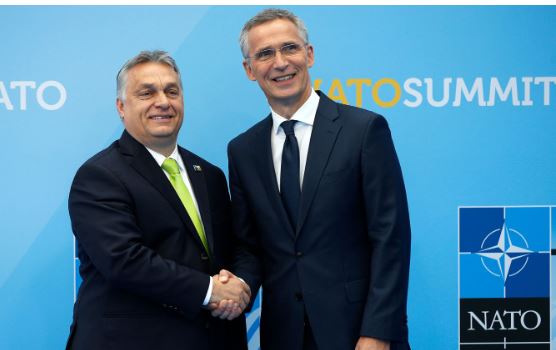Hungary Backs Sweden’s NATO Membership Amidst Rising Security Concerns

In a significant development in European geopolitics, Hungary has expressed its support for Sweden’s bid to join the North Atlantic Treaty Organization (NATO). This endorsement from Hungarian Prime Minister Viktor Orban came during a meeting with NATO Secretary-General Jens Stoltenberg, highlighting the shifting security landscape in Europe.
Hungary’s support for Sweden’s NATO membership comes at a crucial time. The move is seen as part of a broader trend of European countries seeking to strengthen their security alliances in response to escalating tensions and uncertainties in the region, particularly due to the ongoing Russia-Ukraine conflict.
Sweden’s decision to seek NATO membership, breaking away from its long-standing policy of non-alignment, reflects growing concerns about regional security. The move has been widely debated within Sweden and has garnered varying levels of support from existing NATO members.
Hungary’s endorsement is particularly noteworthy given Prime Minister Orban’s often contentious relationship with the European Union and his previous engagements with Russia. This gesture signifies a recognition of the changing security dynamics in Europe and the need for solidarity among European nations.
The backing from Hungary could significantly influence other NATO members and contribute to a more unified stance within the alliance. It underscores the importance of collective security measures and the role of NATO in ensuring peace and stability in Europe.
However, the path to Sweden’s NATO membership is not without obstacles. Turkey has expressed reservations, citing concerns over Sweden’s stance on certain political issues. This situation highlights the complexities of diplomatic relations within international alliances and the challenges of accommodating diverse national interests.
As discussions continue, the international community watches closely. Sweden’s potential inclusion in NATO is more than a matter of regional security; it represents a shift in the geopolitical landscape of Europe, signaling a new era of strategic alignments and defense cooperation.





